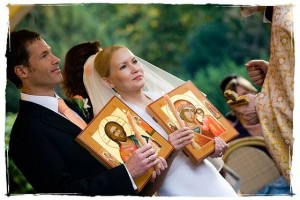I had one question for the padre after my first Orthodox service: “What do I have to do to become a priest?”
Rather than brushing off this 16-year-old, Father Michael offered two solid suggestions.
“Well, you need to become Orthodox,” he observed, “then you’d need to marry a woman who’s Orthodox.”
This was my introduction to the hard wisdom of the ancient faith. However much a bird might love a fish, they’d be hard pressed finding a place to lay their eggs.
Looking for a partner with similar values on which to build a family makes sense, but fewer folks seem to see the advantage these days. Married couples now represent a minority of U.S. households, as young adults delay tying the knot until their careers are established.
Some may love their boyfriend/girlfriend, but realize marrying them is out of the question. Meanwhile, they “test the waters” by cohabiting.
For unwed Christians, at least those who believe biblical morality is binding, there’s one problem with this course — fornication is considered a sinful and self-destructive act.

For more than a decade of our lives, our bodies tell us we’re ready to reproduce, yet social convention makes this increasingly difficult. Hopes for earlier marriage can also hit an obstacle in the paucity of spiritually compatible prospects among the opposite sex.
In my case, the need to marry within the obscure minority of American Orthodoxy represented an added difficulty. Although intermarriage with other Trinitarian Christians is practiced, priests must have Orthodox wives, as Father Michael told me.
Aside from the canonical requirement, this course means common sense for one who’d drag his spouse through the obligations that go with clergy wife-hood.
Since my parish had no girls my age (aside from the clergy kids, who’d learned from their mothers’ experiences to avoid aspiring priests), this meant a lot of missionary dating — or actually, courting.
An Orthodox Jewish rabbi with a radio talk show persuaded me early on that dating was an unbiblical waste of time, so I decided I would critically evaluate any relationship early on to see whether there was a point to continuing it.
This philosophical approach soon got mangled by the freight train of infatuation. The first girl who planted one on me almost got a marriage proposal that week, even though she was a spiritual-but-not-religious gal who thought my faith was colorful but too traditional to become her own.
Thankfully, she ended up being the one who was honest enough to realize it couldn’t work. Once you go gaga, common sense is easily abandoned. You begin rationalizing away your principles.
You think you’ll change someone, but you’re the one who changes. I have the utmost respect for those who maintain their faith within spiritually heterogeneous unions, but I didn’t have the stamina for it.
After repeated ventures through the cycle of hope and disillusionment, I developed a new tactic. The third date would involve coming to church with me. I struck out a few times with that one, which was tough, but I’m glad the pain came sooner rather than later.
Eventually, I lucked out. A seminary classmate’s sister couldn’t run fast enough. We just celebrated eight years of marriage.
I’m glad I got repeatedly rejected for sticking to my principles, because my children know who they are and what our family believes. This was about them, after all.
I baptized them, and commune them every Sunday. When their mother and I are gone, they’ll be what remains of us. Having given them our faith, we hope they’ll keep it, and light a candle in our memory.
Source: The Pueblo Chieftain Online
You might also like:


















